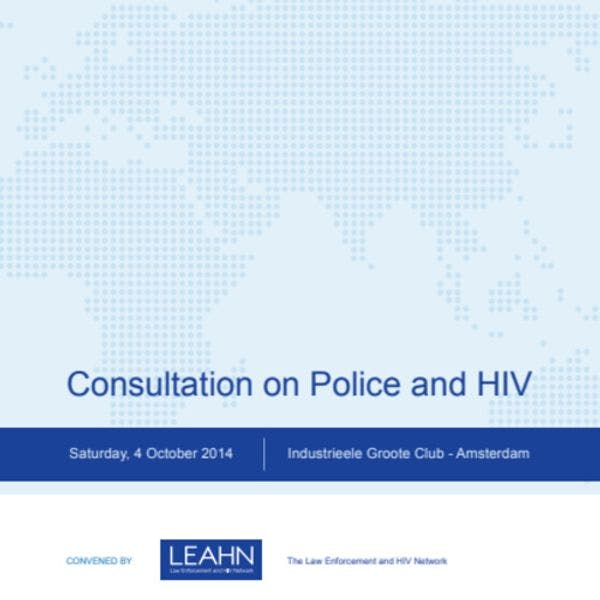Consultation on police and HIV
Police are a critical sector in determining the risk environment for HIV for most key affected populations (KAPs), especially sex workers, people who inject drugs, and other marginalized communities. In the global response to HIV, the key importance of the police role has been well recognized and integrated in many developed countries. In most of the developing and transitional world, however, there is a large literature on police as barriers to effective HIV responses, and their role in violations of the human rights of these key populations – but much less about how to work with police to change these situations.
A major barrier to change among police agencies is the perception by police that they have no role in the HIV response, that their role is simply concerned with the criminal justice system. Attempts by agencies whose agenda is HIV prevention or care to involve police are therefore often unsuccessful, as they address the concern of the agency, and are irrelevant to the perceived concerns of police. As well, such attempts are often fragmented, as international agencies each have partial agendas, focusing on one or other community and not co-ordinated. Interventions including one-off training of police cadets and sensitization of police personnel to HIV and human rights are necessary but by themselves inadequate, because the ability of the individual police officer to change their behavior in an unchanging police culture is very limited.
The need therefore is for change in police policies, culture and practices; the most potent strategies for such change (as in any closed culture) will likely include peer education (combined with law and policy reform), and engagement in partnerships with other key stakeholders, to promote awareness of each partner’s perspectives and concerns.
Several agencies globally are supporting activities with police in relation to HIV and to human rights, and an increasing number of community service organisations (CSOs) and non-governmental organisations (NGOs) are developing collaborative relationships with local police, but there is little or no coordination of effort or message. Over the last few years there has been increasing interest on the part of international agencies in the involvement of police in the HIV response. This is to be welcomed, but comes with a risk of fragmentation of effort and a confusing diversity of approach. There is however accumulating evidence and experience which needs to be collected and shared.
Keep up-to-date with drug policy developments by subscribing to the IDPC Monthly Alert.
Downloads
Regions
Related Profiles
- Law Enforcement and HIV Network (LEAHN)
